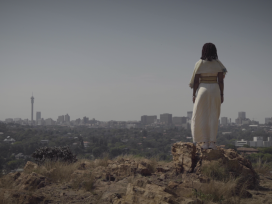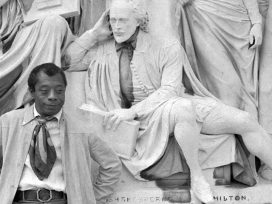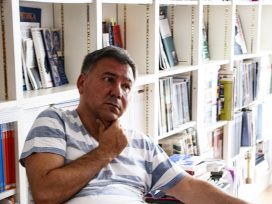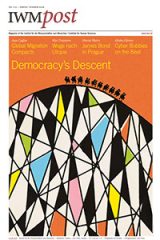

In collaboration with
Institute for Human Sciences
The Institute for Human Sciences / Institut für die Wissenschaften vom Menschen (IWM) is an independent institute for advanced study in the humanities and social sciences. Since its foundation in 1982, it has hosted more than 1500 scholars, journalists and translators from all over the world. Many of the Institute’s Permanent and Visiting Fellows are regular contributors to Eurozine or its focal points The World in Pieces and Ukraine in European Dialogue (see below).
Website: www.iwm.at
X (formerly known as Twitter): https://x.com/iwm_vienna
Youtube: https://www.youtube.com/channel/UCIwFQ_iRX8w8D0NKJo41Ihw

Articles

Made in the EU
Why workers are fleeing Romania’s garment industry
‘Sweatshops’ are usually associated with labour outsourced to east- and south-east Asia, but they exist inside the EU too. Gruelling working conditions in Romania’s low-pay garment industry, which supplies clothes for mid-market and luxury retailers alike, force many people to go abroad in search of a real living wage.

Changing places
Notes for an essay film
After moving from Johannesburg (Jo’burg) to Gothenburg (Go’burg), filmmaker Jyoti Mistry struck up a friendship with someone who went the other way: Katarina Hedrén, who was adopted by a white Swedish family, and moved to South Africa as an adult. This deeply personal take on race shows how ‘colour-blindness’ denies that racial prejudice exists but robs people of colour of words to talk about the discrimination they face.

In a politicized age, the scepticism and elegance that have traditionally characterized the art of the essay can seem extravagant. In the US in particular, there have been calls for essayists to trim their sails and position themselves explicitly. Does the new mood of engagement mean that the essay’s habitual rejection of dogmatism is passé?

‘The future was next to you’
An interview with Ivan Krastev on ’89 and the end of liberal hegemony
Ivan Krastev and Stephen Holmes argue that illiberalism in central eastern Europe today is part of a global contestation of western liberal hegemony. In an interview with Eurozine, Krastev elaborates on this thesis, discussing what happened to the hopes of ’89, why dissidence cannot be equated with anti-capitalism or even liberalism, and why explaining the new authoritarianism as a backlash against the ‘imitation imperative’ is not to trivialize its ideological substance.
Focal points

Inspired by a lecture that Clifford Geertz delivered in 1995 at the Institute for Human Sciences in Vienna, this focal point engages with ‘deep diversity’, ‘a sense of dispersion, of particularity, of complexity and of uncenteredness’ rather than unified world order. It follows the launch of a research programme of the same name at the institute in January 2023.

Post-revolutionary Ukrainian society displays a unique mix of hope, enthusiasm, social creativity, collective trauma of war, radicalism and disillusionment. With the Maidan becoming history, the focal point ‘Ukraine in European Dialogue’ explores the new challenges facing the young democracy, its place in Europe, and the lessons it might offer for the future of the European project.
Projects and publications

